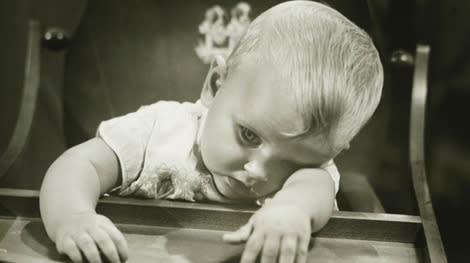Why Your Toddler Really, Really, Really Need a Nap

The end is nigh. I just know it. But in my mind's eye, I light incense and offer up the dregs of my daughter's food -- crushed Cheerios, half-eaten veggie hotdogs and glue-hard
mac and cheese-- to the mysterious forces that hold sway over my child'ssleep patterns. Please, Toddler Sleep Gods, preserve this two-hour nap for just one more day, I silently plead after I close the door to my now-3-year-old daughter's room.
Read More:10 Tips for Getting Your Baby to Sleep Through the Night
I get that after the age of 3 kids' naps begin to fall off the slumber map, and most quit them altogether by age 4, but so far we're still hanging in there. And now that I've read a new study about the long-term emotional well-being that's tied to getting enough sleep as a toddler, I'm lighting even more candles to the Toddler Sleep Gods.
Just One Missed Nap Can Spell Mutiny
According to Futurity.org, Monique LeBourgeois, assistant professor of psychology at the University of Colorado at Boulder, measured the emotional wellness of "healthy but nap-deprived toddlers [2 ½ to 3 years old] one hour after their normal nap time, and tested them again on another day following their normal nap."
LeBourgeois and the researchers engaged sleep-deprived toddlers and nap-normal toddlers in play activities, like puzzles. Turns out the sleep-weary kids were far more anxious and negative when challenged to adapt to new experiences. The kids were videotaped while working on kid-friendly picture puzzles, some of which were unsolvable. This is what they found in nap-deprived toddlers as compared to a control group of nap-happy children (keep in mind that this is after just one missed nap):
Nap-deprived toddlers completing the solvable puzzles had a 34 percent decrease in positive emotional responses. Translation: less joy from their achievements.
Nap-deprived toddlers completing the unsolvable puzzles had a 31 percent increase in negative emotional responses. Translation: more upset by their inability to perform.
Nap-deprived toddlers had a 39 percent decrease in the expression of confusion when working on unsolvable puzzles. Translation: the part of their brain that says, "Something's weird here" was asleep at the wheel.
Nap-deprived toddlers were also less likely to ask for help after being met with an unsolvable puzzle, indicating that they weren't as engaged with the puzzle as their sleep-fueled counterparts.
The Long-term Impact of Nap Deprivation
The knee-jerk reaction is that round nap time we should all be dimming the lights and softly singing lullabies. But the reality is that some of us have children in daycare, day school or other situations where nap time isn't exactly exalted. Not to mention kids who just plain refuse to nap. Which makes statements like this one from LeBourgeois even more enlightening/frustrating:
"This study shows insufficient sleep in the form of missing a nap taxes the way toddlers express different feelings, and, over time, may shape their developing emotional brains and put them at risk for lifelong, mood-related problems."
More about the study can be found here and here.
This post was written by Julie Douglas.
More Articles on Kids and Sleep
Children Who Don't Sleep Enough are More Likely to be Overweight
Sleep Problems in Kids School Kids Linked to Disruptive Behavior and Bullying
How Do You Adjust Your Kids' Sleep Habits When School Starts?
